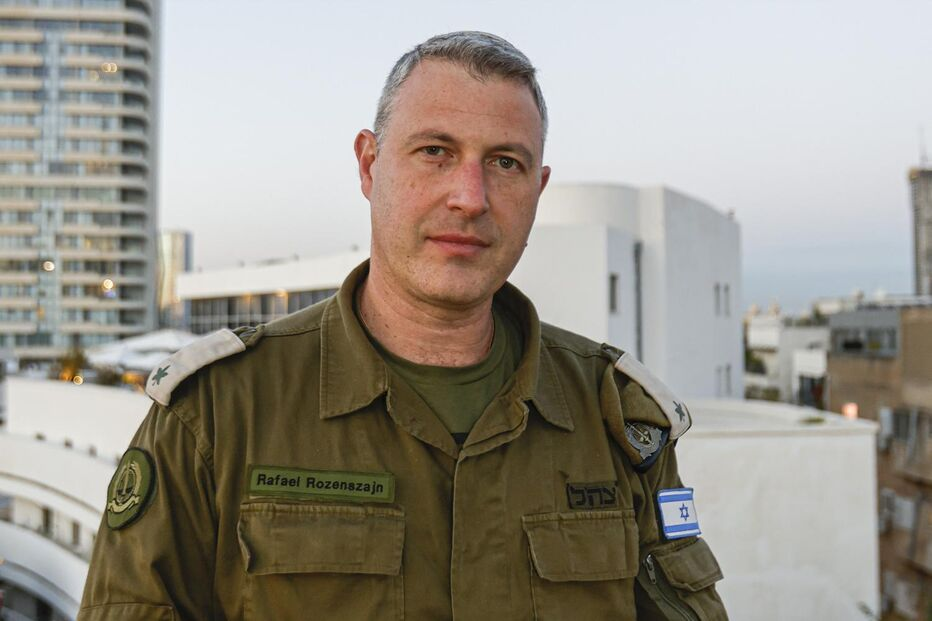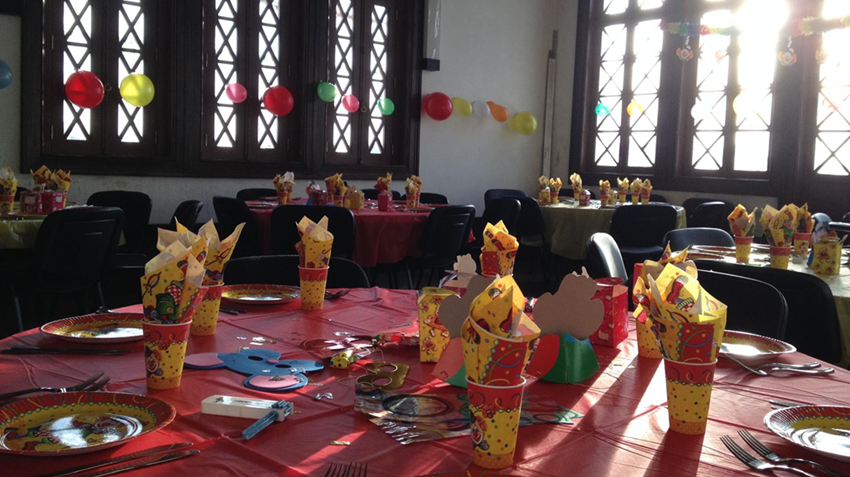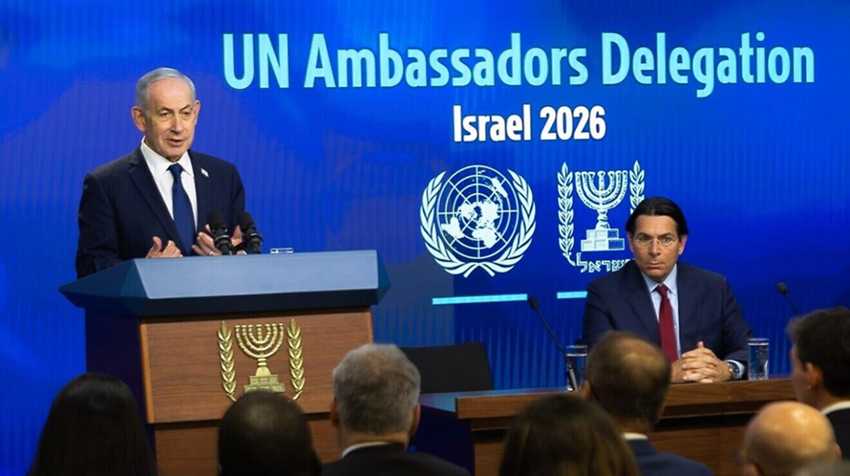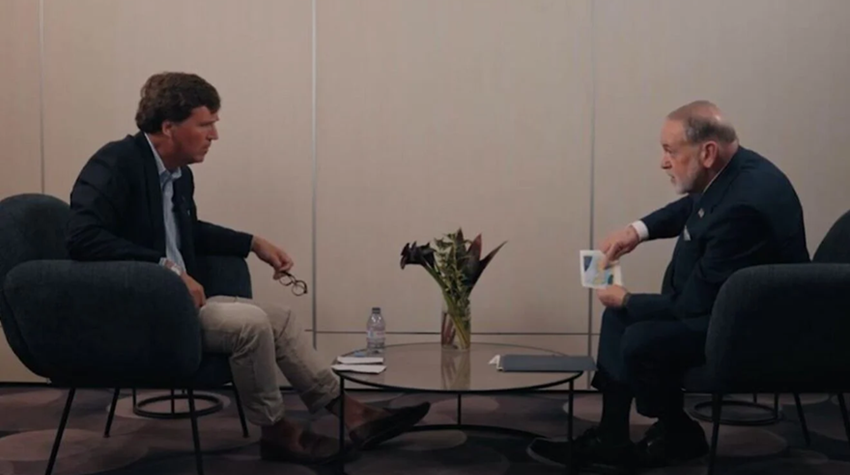Credit: Alfredo Leite
In uniform and wearing a kippah, Rafael Rozenszajn spoke to Domingo without filters—though his speech was carefully aligned with the official stance of the Israel Defense Forces (IDF). He discussed the situation of Hamas hostages, the future of Gaza, and his experience of informing families about the deaths from the October 7 attack.
How long will it take Israel to overcome the trauma of October 7, 2023?
This was the largest terrorist attack the Jewish people have suffered since the Holocaust—perhaps one of the most significant terrorist attacks of this generation. On October 7, around 4,000 terrorists entered Israeli territory, invaded 20 communities, murdered 1,200 people, raped women, beheaded individuals, and burned people alive. They also kidnapped 251 people, including babies, women, and the elderly. One of them is 86 years old—his name is Shlomo Mansour. He is a Holocaust survivor and is now experiencing the second Holocaust of his life in the tunnels of the Gaza Strip.
So, we are talking about a terrorist group of the most extreme cruelty imaginable. But the people of Israel are strong—they know they have an army to defend them, and we are doing everything necessary to ensure the country's security.
How could an army as strong and well-equipped as Israel’s allow the Hamas attack to happen? Will there be an investigation?
Absolutely. There is no doubt that it was a significant failure, and the Israeli army knows how to investigate its mistakes and learn from them. We are conducting an investigation, and once we have our conclusions, they will be communicated transparently.
On October 6, the day before the Hamas attack, 18,500 Palestinians were working in Israel, entering the country daily and earning salaries six times higher than they would in the Gaza Strip. Additionally, 7,500 Gazans came to Israel for medical treatment, including children with cancer who otherwise wouldn’t have had access to care. The people handling the bureaucratic procedures for these Palestinians were among those kidnapped—those who lived in the communities invaded by Hamas terrorists.
Today, we understand that Hamas carried out the October 7 attack because their hatred for the people of Israel is far greater than their love for their own people.
Do you believe it is truly possible to eliminate Hamas, given that it continues to gain followers, including in the West Bank?
Hamas is an idea, and you cannot eliminate an idea through military action. Military operations can destroy military capabilities, but not an ideology. Unfortunately, Hamas represents an ideology of hatred, destruction, and extermination.
We deeply wish that a vision of harmony, peace, and coexistence could take root in the Gaza Strip. The State of Israel has already demonstrated to the world that it can make peace with its neighbors—even with its former enemies. After all, peace is not made with friends.
So, ending Hamas is a political issue?
I believe ending the idea of Hamas is up to the Palestinian people. You can only end an ideology by replacing it with a better one. We hope that Gaza will eventually embrace an idea of coexistence, peace, and harmony instead of an ideology rooted in Hamas, destruction, and hatred. Only then can we achieve peace in the Middle East.
Does the IDF know how many Hamas hostages have died in Gaza?
Unfortunately, many people were murdered on October 7, and others have been killed in Hamas captivity. Hamas didn’t just kidnap living people—they also took the bodies of those they had already murdered. Some of them were beheaded by Hamas terrorists.
We are committed to bringing them all home. We have already informed dozens of families that their loved ones were murdered by Hamas. However, we also know that most of the hostages are still alive.
You had the difficult task of informing families about the deaths from October 7.
I was called, along with other officers of my rank, to be part of a team that personally visited families to deliver the news of their loved ones’ deaths.
I remember one family where both parents were murdered, and their twin babies survived after spending 16 hours inside a bomb-proof room next to their dead father.
Was that the most difficult situation you have ever faced?
Yes, because I had to go back to the same house twice. The babies were there with their paternal and maternal grandparents. I couldn’t inform the mother’s family immediately because her body was in critical condition and had not yet been identified. So, I had to return a second time once her body was identified.
How did families react to your arrival?
At some houses, I didn’t even have to say a word. In others, the family already knew—the moment an army officer knocks on the door, the message is clear.
There are even homes where family members serve as reservists, and they place signs asking people not to knock on the door. People are traumatized by that knock. In many cases, I felt like the Angel of Death, delivering the worst news of their lives.
Many families will never know what happened to their loved ones because the bodies could not be identified.
The people of Israel sanctify life—unlike Hamas, which glorifies death. That is why we risk our lives, even to retrieve bodies, so they can be buried with dignity and respect.
From a military perspective, do you believe the ceasefire agreement will be fully implemented?
As a soldier, I can say that we are determined to bring back all the hostages held in the Gaza Strip. Unfortunately, we do not get to choose who we negotiate with. We are dealing with the cruelest terrorist group imaginable, and we know Hamas has a history of breaking agreements.
Biography: Rafael Rozenszajn
Age: 41
Nationality: Brazilian (born in Rio de Janeiro)
Background: Grandson of a Holocaust survivor. Moved to Israel at 21.
Education: Law degree from Tel Aviv University; postgraduate degree from Northwestern University (Chicago, USA).
Military Career: Holds the rank of major. Has served in multiple military roles and has been the IDF spokesperson since late 2023.
Source: Correio da Manhã, Alfredo Leite


































